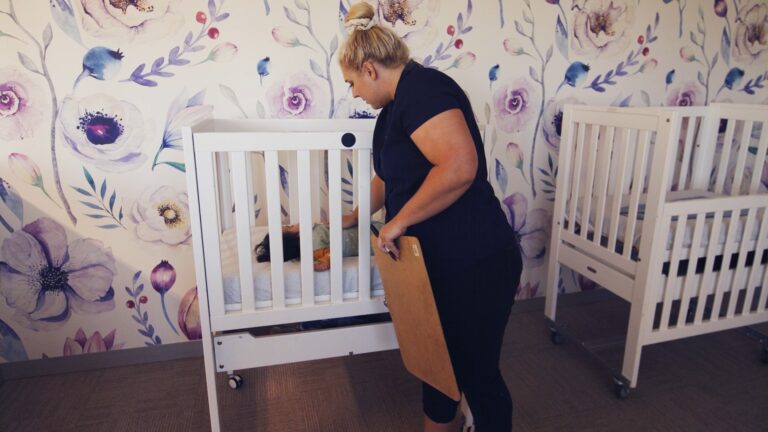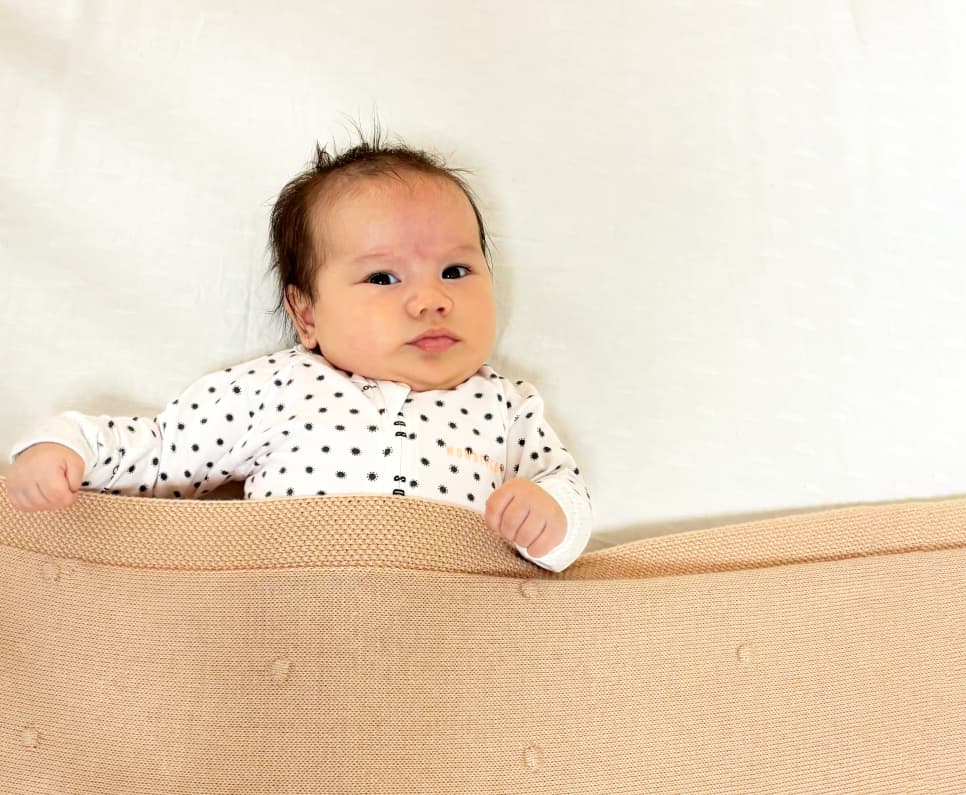Always remember that babies and children are unique and have different sleep, rest and relaxation needs so it is very important to factor this in when trying to build healthy routines.
Why a Routine?
Routines for babies over 4 months can be helpful and let your bub know it’s sleep time. Starting with feed, quiet play, nappy change, cuddle, then placing your child when drowsy in the cot is best. We recommend a hands-on settling technique for an upset child. Never leave a crying child. Stay with them so they know that they are safe and help support them to sleep.
Using the same routine for all sleeps (day and night) helps the child understand that the time for being awake is over, and it’s sleep time. Patterns help this but each little one is different, and parents and caregivers have lots of unique ways to get their little ones off to the land of nod.
- A pattern might be
- Feed
- Nappy change
- Quiet play (book reading or soft singing)
- Cuddle
Then place the baby in their own cot when they are drowsy.
Some families do things, like lowering curtains, singing the same song, or playing white noise. This can help your child learn that it is time for sleep. Find what works for you and your family.
Overtired babies are harder to get to sleep, so to help you with finding that sweet spot for bedtime keep an eye out for the following signs and act fast to pop them into bed
Up to Four Months
Early tired signs include:
- Avoiding eye contact
- Arching or turning head
- Red eyes
- Clenched fists
Four to Eight months
Early tired signs include:
- Grizzly
- Jerky movements
- Staring into space
- Pale face / red eyebrows
- Hyperactivity
- Crying
Follow the above steps and remember that toys and comfort items may be helpful for babies, older than 7 months age old. Younger babies, have a greater risk of overheating or suffocating if sleeping with a toy or comforter. Settling younger babies with soft toys under supervision is fine but these toys must be removed for safe sleep.
Good sleep habits created earlier may help settle your child as they age. But remember, some days will go as planned, but others can sometimes feel like you’re in a battle with your bub. Don’t stress. There could be so many reasons your bub is fighting sleep and is harder to get down. Just try again next time!
No matter what you are doing, make sure you follow our Safe Sleep Recommendations when putting baby to sleep.
Did you find this helpful?
Good job! Please give your positive feedback
How could we improve this post? Please Help us.



